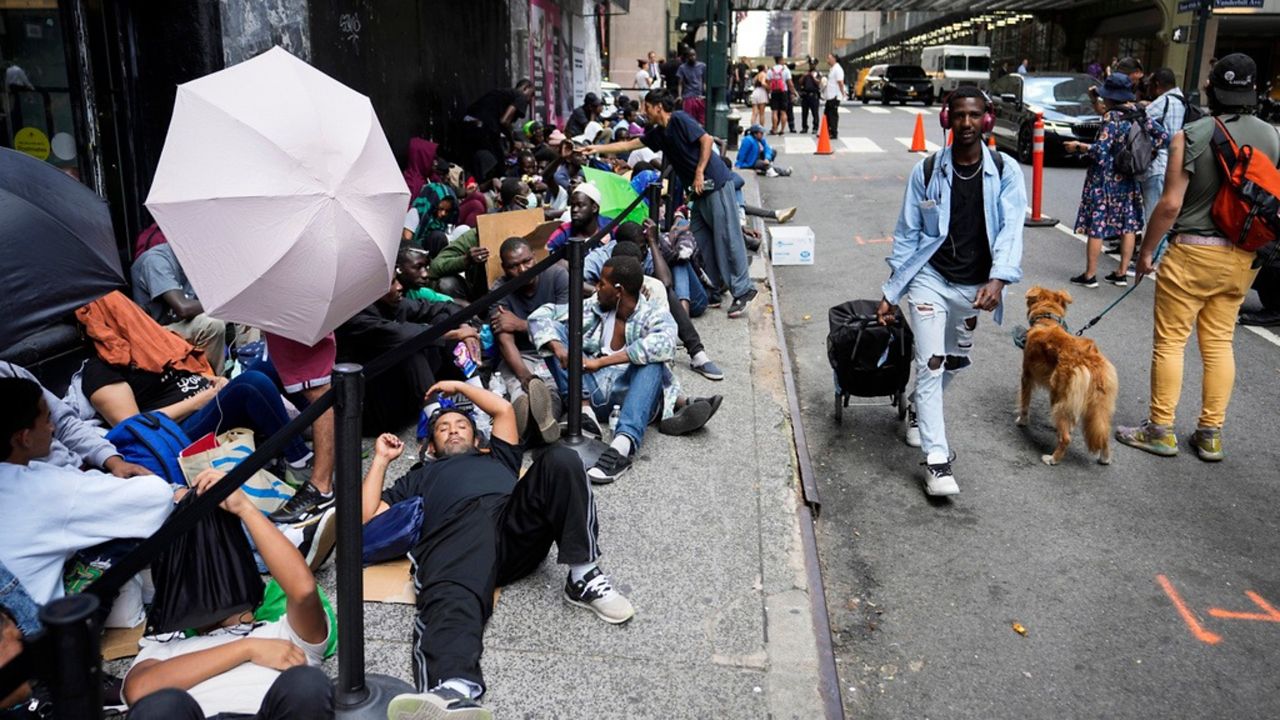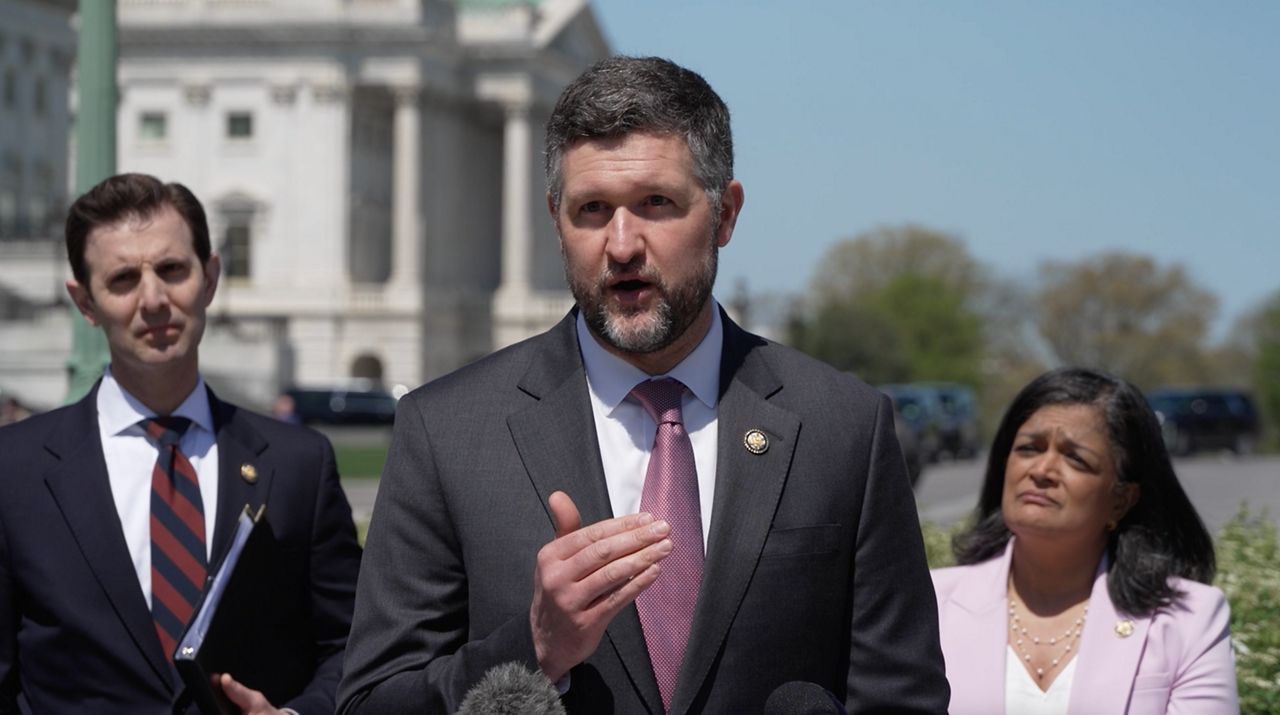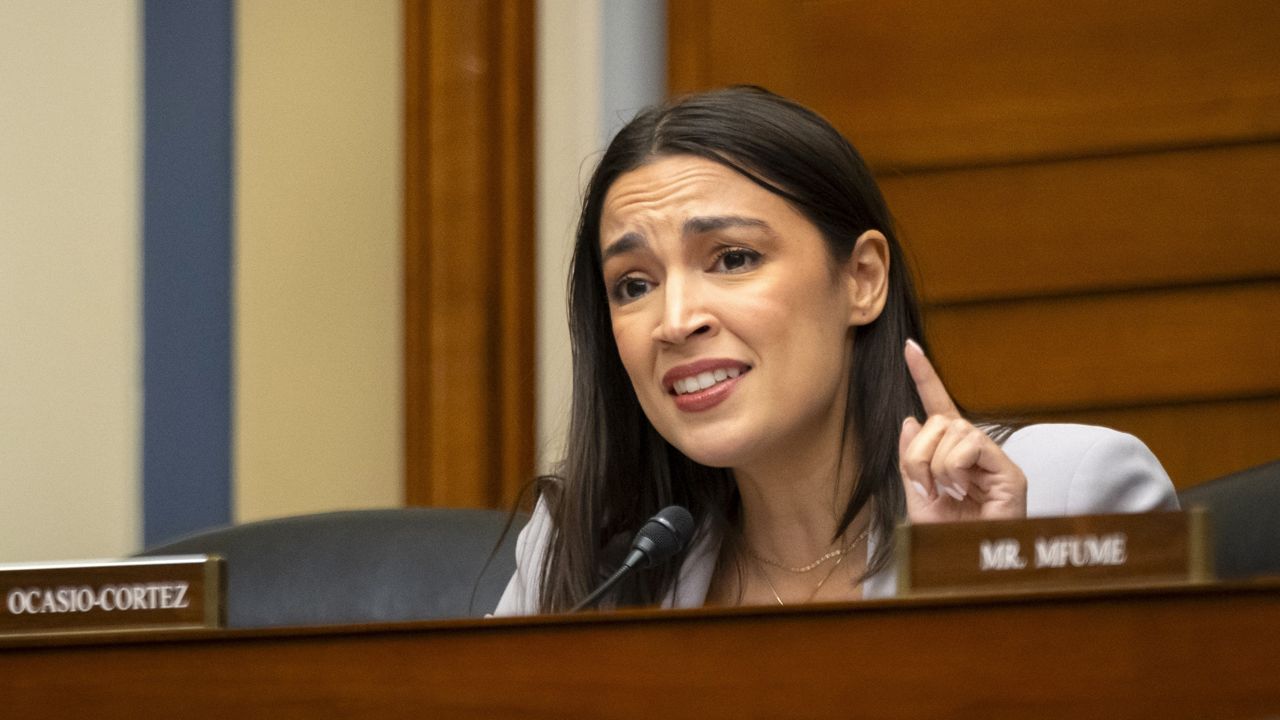The federal agency tasked with processing work permits and other applications from asylum seekers will keep at it, even if the federal government shuts down this weekend.
“We are fee-funded so we do not shut down,” Ur Jaddou, the director of the U.S. Citizenship and Immigration Services, told NY1 in an interview. “We are continuing to adjudicate at the levels that we have always done.”
Last week, the Biden administration announced it is expanding the population of migrants eligible for Temporary Protected Status to include Venezuelan nationals who arrived in the U.S. by July 31. This could speed up access to work permits for thousands of asylum seekers in New York City.
Jaddou was in the city on Friday to see first-hand how city, state and federal agencies are navigating the surge of migrants there.
She visited the migrant arrival center, where federal workers are helping with outreach to the migrants, passing out flyers and answering questions about the work permit application process. She also saw an American Red Cross facility and a work authorization assistance center.
Jaddou said she was “awe-inspired by all the people who are not only here doing the work because they need to do the work, but frankly, because they're really excited to be here.”
A spokesperson for USCIS noted the agency has sent out email and text alerts to migrants about their eligibility for work authorization, is offering information sessions for migrants at libraries, and has taken steps to streamline the work permit application process. The agency also is offering mobile biometrics services like fingerprinting.
Jaddou says USCIS is “committed” to meeting a 30-day median processing time for work permits.
Although the filing fees associated with various immigration forms will help to allow USCIS to continue operating during a shutdown, Jaddou argued Congress should allocate additional money to the agency, potentially increasing its capacity to process work permits and TPS applications.
“We have a limited set of funds based upon what people are paying us. It can sometimes be limiting,” Jaddou said. “Frankly, we could do a lot more if Congress would help us.”








